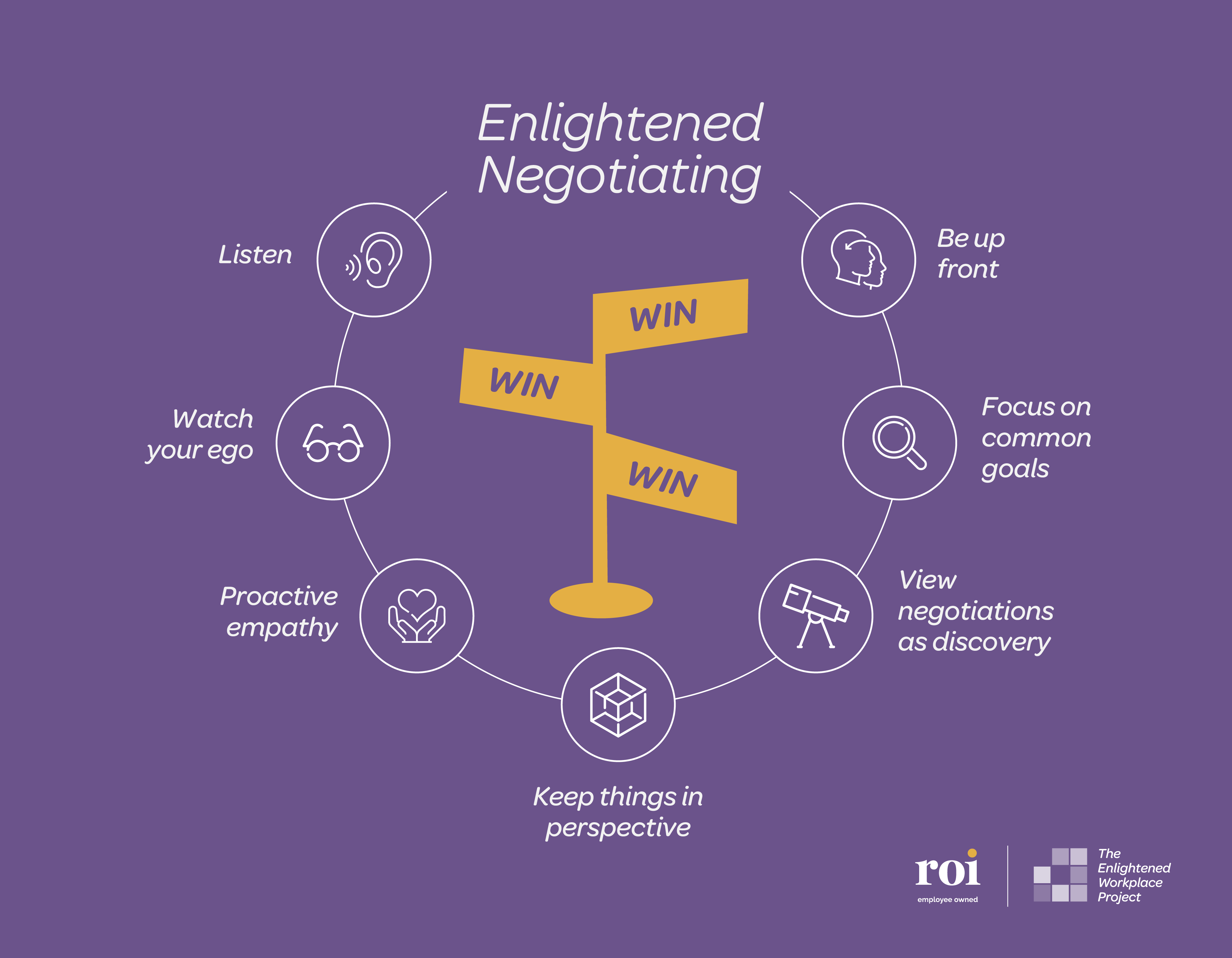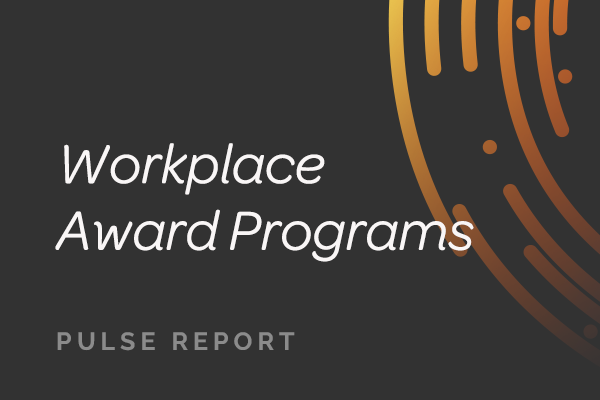

Negotiation is something we do in many parts of life, both professional and personal. We negotiate job offers, salaries, promotions, budgets. We negotiate car purchases, house purchases and where to go on vacation. A common view of negotiation is that one party will achieve a better outcome than the other, based on their negotiation skills, shrewdness or the power they hold in the relationship.
However, at a basic level, negotiation is really a discussion aimed at reaching an agreement where both parties have something to gain and something to give. Many views of negotiation take an adversarial approach to the process along the lines of “I get as much as I can for me, regardless of what that means for you.”
The enlightened view of negotiation takes the stand that nobody wins when anybody loses.
An enlightened negotiation means there is a win-win-win. This includes the parties involved, plus the outside stakeholders who will be affected by the outcome. An example of that might include two country leaders negotiating an industrial pollution agreement with external stakeholders being inhabitants of the planet.
Dr. Judith Rich, author and coach, wrote an insightful piece in HuffPost on redefining winning, where she talks about the need to win being baked into our DNA, thanks to ancestors who depended on winning for survival. Even though winning is rarely a question of survival for people today, we are still obsessed with winning, power and proving our superiority. She goes on to say that if winning requires you to sell your soul, compromise your values or do harm to others, does that qualify as a win?
Joel Peterson, Chairman of JetBlue, says that the best way to win a negotiation is by not trying to win, but rather by viewing it as a conversation – an exercise where both sides are solving a problem with the eventual answer being one thing – fairness.
Enlightened negotiation reframes what it means to win by underscoring the value of peace and harmony in an exchange. Focusing on peace and harmony does not mean that one or both parties have to forfeit the highest possible outcome, financial or otherwise. Those outcomes are important. However, it does set the standard for how the endeavor will play out.
Additionally, a mental state of clarity and peace at the negotiating table can have other benefits such as evidencing new, additional outcomes that might be unexpected. People often see the world as binary – black and white, male and female, yes and no. However, the world is not binary. If Options A and B, whether in a decision or a negotiation, are stalled or seem uninspired, look for Option C. Inevitably, there are more than two options.
Here Are Our Recommendations for Enlightened Negotiating:

- Start by listening. Hear what the other person is needing in the exchange. Repeat it back if you want to make sure you understand. Make it a conversation.
- Be up front about what you’re trying to accomplish.
- Focus on the common goal. What is the joint problem or opportunity you want to solve (e.g., filling a job position, buying/selling a home, approving a budget)?
- Practice empathy by putting yourself in their shoes. How would it feel to be them needing what they’re asking for?
- Watch your ego. Egos love to be right and have their way. If things get heated or intense, take a breath and bring the energy down. Don’t get caught up in being right or superior.
- Keep things in perspective. Barring things such as hostage negotiations, most negotiations are not life or death. Three or six months from now, how much will the outcome matter?
- Finally, view negotiation as discovery. Let it unfold. Be open to unexpected outcomes.
In classical Taoist philosophy, there is a practice called Wu-Wei. In his book, The Tao of Abundance, author Laurence Boldt refers to Wu-Wei as “effortless action” or “unforced action.” It implies a “fundamental trust in life, self and the universe” that is counter to tensing, gripping, resisting or trying to control a situation. He says the Taoists advise us to “move like water,” because “water conforms to the shape of things yet retains its own innate and effortless power.”
We share the concept here because negotiations can be full of resistance. The analogy of water implies power coupled with flow, movement and non-resistance. So, the guidance here, when in a tense situation, is to notice when you’re tense or resisting and release it. This isn’t being passive or giving up. It’s just releasing the grip and seeing what happens. So much of negotiation is mindset, both before and during the negotiation. Think of the outcomes that might be possible if you approached these situations not from a mindset of greed, control or lack, but rather a spirit of equanimity, collaboration and abundance.
Learn about The 7 Elements of an Enlightened Workplace:
See Also:
Contributors:
Kristin Brownstone
Vice President, Strategist
Kristin has nearly 30 years of experience helping billion-dollar companies make a positive impact on the world. A certified executive coach, author, public speaker and Sparketype Advisor, her expertise has been sought out by leaders at Adobe, Apple, CEMEX, Amazon and numerous other businesses.








